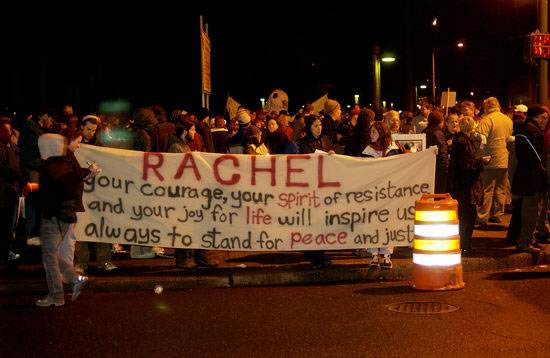[The final installment in a continuing series by guest author Dr. Dahlia Wasfi.]

Rachel Corrie literally stood up for what she believed on March 16, 2003. She stood before the Israeli military who came to Rafah in armored bulldozers to level homes.
With her courageous stand, she equated her Western life with the lives of the Palestinian families behind her. Perhaps her actions were an affront to the occupation soldiers staring down from their sixty ton vehicle. Perhaps her actions inspired them to crush her to death.
Her actions inspired me to follow my heart and find my voice. To me, her courage showed hope and strength.
With Rachel’s example before me, my life has directed me to know my family. I traveled thousands of miles to go see them and know them.
But my work as an activist has also taught me that I don’t only have family in Iraq. My relatives are everywhere: in Afghanistan; in Pakistan; in Kashmir; in Vietnam; in Walter Reed Army Medical Center; in Arlington Cemetery; in every village and city around the globe.
You have relatives there, too.
My medical career is on hold so that I can focus on calling for the immediate, unconditional end of war and occupation on behalf of all of my family.
What would you do for your family?
What will you do?



